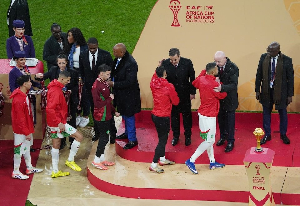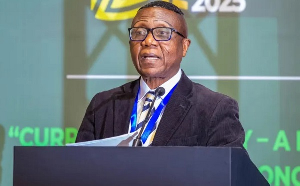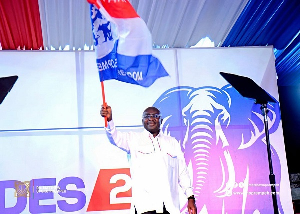The World Vision Ghana (WVG), a Christian humanitarian, advocacy and development non-governmental organisation (NGO) has invested close to US$12 million to support community development in the country, Efua Ghartey, the Board Chair has said.
She said investments were made in water provision, sanitation and hygiene, education, livelihood empowerment, interfaith, sponsorship and child protection and advocacy interventions.
Speaking at the closing session of the Kintampo South Cluster and Anyima Mansie Area programmes of the WVG, held at Jema in the Bono East Region, Mrs Ghartey said the NGO was determined to improve the socio-economic livelihoods of boys and girls, their families and communities.
The WVG introduced and started the implementation of the Kintampo South Cluster and Anyima Mansie programmes in 2008, and the programme had since reached 80,145 beneficiaries in the area.
Mrs Ghartey explained significant changes had increasingly been observed in the lives of children, their families and communities, saying as at the end of 2019, WVG had drilled 163 boreholes in 125 communities, 28 in schools and 10 in health centres under the Kintampo Cluster project.
These, she explained, had contributed to 41.105 per cent of households having access to safe and sufficient drinking water from improved sources with 92.41 per cent of children having their household accessing safe water for livelihood activities.
She added that the programme had formed 44 functional Water and Sanitation Management Teams (WSMTs) to ensure continuous functioning of water facilities and services in the beneficiary communities.
Mrs Ghartey said with the introduction of Community Led Total Sanitation (CLTS), households were catalyzed to appraise their own sanitation situation and their resolve to tackle them through the construction and use of household latrines.
These, coupled with appropriate hand-washing behaviour interventions, had reduced the prevalence of diarrhoea in under-five children to as low as 4.21 per cent in the project intervention areas, she said.
Mrs Ghartey observed a literacy intervention programme dubbed Reading Improvement in Primary Education (RIPE) implemented by the programme trained untrained teachers and had improved significantly on teaching and learning.
She appealed to the District Assembly and community leaders to take leadership responsibility of all the reading camps established in the various communities to ensure their functionality for improved reading skills of children.
Mrs. Ghartey added the programme enrolled about 140 teenage mothers and young people into various apprenticeship training programmes to enable them to acquire employable skills and improve on their socio-economic livelihoods.
Mr Alexander Gyan, the Kintampo South District Chief Executive praised the WVG for its interventions and contributions towards the development of communities in the area, saying the programme had helped to curb open defecation which was a challenge in many of the communities.
With the programme, he said the WVG supported many households in deprived communities in the District to build household toilets that had improved on environmental sanitation and personal hygiene.
Regional News of Tuesday, 22 September 2020
Source: GNA
WVG invests $12 million in community development
Entertainment












